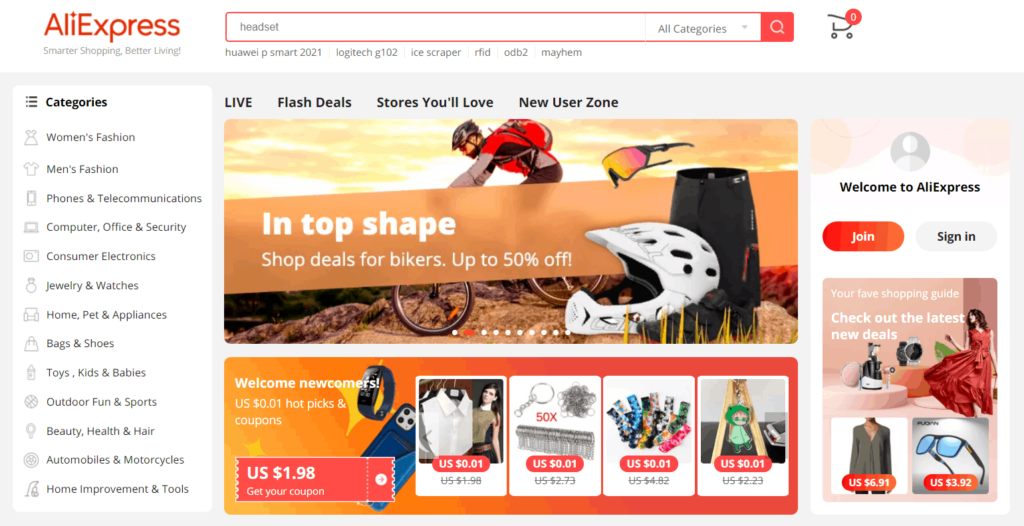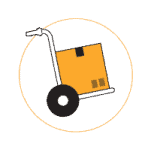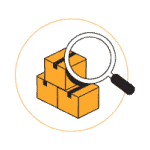If you're a Shopify store owner looking to grow your business by expanding your product selection, importing products from Alibaba is definitely something you should consider.
But the question is, how do you go about doing that in 2023?
Well, in this article, we'll outline the process for you step-by-step. So read on if you're interested in learning more!
The 4 best apps for importing products from Alibaba to Shopify
Before getting into the nitty-gritty of each application, let's take an overall look at the features each one has to offer:
| App | Product importer | Product finder | Business dashboard | Order fulfillment automation | Pricing Rules | Manage multiple stores |
| AutoDS | ✔ | ✔ | ✔ | ✔ | ✖ | ✖ |
| Dropified | ✔ | ✔ | ✔ | ✔ | ✔ | ✔ |
| Importify | ✔ | ✖ | ✖ | ✔ | ✔ | ✖ |
| Dropshipping Alibaba Official | ✔ | ✔ | ✖ | ✖ | ✖ | ✖ |
Don't forget that there is no ‘one-size-fits-all' app, so you'll need to look at your own needs and find out which one suits you best.
1. AutoDS

AutoDS can be downloaded directly from the Shopify app store, which means it's fully integrated into the Shopify ecommerce platform.
Pros
- All in one system. Import products and manage orders, all in one place.
- Customer support. 24/7 customer service is available.
- Analytics. The AutoDS dashboard offers in-depth analytics, showing you sales, hot-selling products, and much more.
Cons
- Pricing. Isn't 100% transparent; some features are also included within an ‘add on' such as the order processing feature.
Pricing
AutoDS has a 3-tier pricing range starting at $7.99 and going as high as $38.99 per month. It's certainly worth checking the plans out, as each offers different features.

The plans all offer a 20% discount when paid for annually and a 30-day trial for $1.
Allowing you to decide whether this app meets your business needs before committing to a subscription.
2. Dropified

Dropified can also be downloaded from the Shopify app store, offering complete integration with the ecommerce platform.
Pros
- Multiple stores. Great for users with numerous stores to manage them all in one place.
- Easy to use. Import products to your store in a single click.
- Analytics. Great business analytics provide insight into profit margins with additional integration to calculate ad spend.
Cons
- Pricing. It's a bit expensive for single-store users.
Pricing
The current monthly price of Dropified is $47 per month.
However, they do have a free 14-day trial if you sign-up via this link here!

When managing multiple stores in one place, this app could be worth its weight in gold by reducing the amount of micro-management the stores need.
3. Importify

Importify is another automation app that can be downloaded directly from the Shopify app store.
Pros
- Price. Relatively cheap for single-store users.
- Easy to use. Import products to your store in a single click.
- Product migration. Importify has made it incredibly easy to migrate products from one supplier to another.
Cons
- Trial period. The trial only lasts for a day; this isn't made very clear to users initially.
- Wholesale prices. Build primarily for AliExpress as it doesn't consider wholesale prices without manual intervention.
Pricing
The pricing is reasonable, starting at $14.95 and going up to $37.95 per month for the semi-automatic order fulfillment included on the gold plan.
The additional feature doesn't currently work with Alibaba.

However, we had to do a little research to see how long the trial period was, and we were pretty disappointed to see this was for only a day.
This perhaps isn't enough time for a user to decide if it's the right app for them, nor was the trial period made transparent to the users.
4. Dropshipping-Alibaba Official

Alibaba themselves have created the Alibaba Dropshipping Official app to simplify dropshipping from them through your Shopify platform.
This app is relatively new, only being released in July 2021.
Related article: Alibaba Dropshipping Center: The Definitive Guide (2023)
Pros
- Pricing. Free to download and use.
- Shortlists suppliers. It shows only suppliers with no MOQ (Minimum Order Quantity).
- Manage orders. Has no automation in place but has a simple-to-use platform for managing your orders.
Cons
- Very basic. Offer's little more than a place to find and import products to your store.
- User feedback. This isn't great; it's currently at 2/5 stars on the app store. The developers seem to be engaging with the community leaving poor reviews, so it's a good sign that they intend to improve the app.
Pricing
It's free to download and use, so there's no harm in giving it a try to see if this fits your business needs.
Which Alibaba integration app is the best for me?
As we mentioned earlier, there isn't a ‘one-size-fits-all' solution, so there is no straight answer to this question.
If your focus is pricing, the Dropshipping-Alibaba Official app may be just what you need.
It does exactly what it says and offers the ability to find and add products to your Shopify store for free but offers very little else regarding features.
If you have several stores and want to take a hands-off approach to managing them, Dropified may be the best solution. It allows you to import products to your store and automates your order processing. Just expect to shell out for this convenience.
While AutoDS can be a little on the pricy side when you begin to factor in the additional add-ons that you may need. But the interface is probably the slickest out there, providing additional in-depth analytics on your store.

Importify is the closest thing you'll find to being the happy middle-ground of pricing and convenience.
While it doesn't offer order processing for Alibaba, it makes up for it by providing product pricing rules and product customization.
4 things to check before importing Alibaba products to your Shopify store
Before you decide on which app you're going to use, it's crucial to speak to the suppliers first.
Speaking to suppliers not only answers any questions that may be unanswered by the products page, but it will help you gauge how well the suppliers respond.
The supplier coming back to you quickly and with a concise answer is just as important as the question itself because this will demonstrate the level of service that you should expect from them in the future.
1. Check for the MOQ
Some suppliers have a MOQ (Minimum Order Quantity) in place, and this can be very off-putting for a would-be dropshipper starting with little capital.
When browsing around Alibaba, you will soon find out that a great deal of the suppliers will request a MOQ. Most of the suppliers are large companies, some even manufacturers, so it may just not be worth their time to dropship individual products.
If you can afford to commit to a MOQ, you may take additional value in dropshipping reduced-price products.

But not to worry, just shop around; other suppliers will dropship without a MOQ if that's what you're looking for. Don't hesitate to ask suppliers if they would be prepared to lower or remove their MOQ; some might do it.
You can learn more about MOQ for dropshipping in our complete guide here!
2. Do they handle dropshipping?
Even if suppliers don't have a MOQ, this doesn't necessarily mean they'll facilitate dropshipping, so it's always good to ask.
Without the supplier knowing that you're a dropshipper, you may run into numerous problems further down the road, such as them sending their promotional material to your customers with the product.
Fortunately, the mentioned four apps enable you to shortlist dropshipping-friendly suppliers.
3. Delivery times
Dropshipping without knowing your estimated delivery times is truly a recipe for disaster. Did you know that some dropshipped products can take up to 90 days to deliver from China to the US?
Your customers are unlikely to want to wait that long, so it's essential to ask your supplier how long deliveries will take.
Your supplier should be expected to evidence their average delivery times; they can do this by giving you recent tracking numbers for delivered orders to your target countries.

If your supplier does not provide tracked delivery, you may want to shop around for another supplier who does.
Customers will want to view their delivery status, especially if they're going to be waiting a little while for their order.
4. How do they handle returns/refunds?
If the product is faulty or taking too long to be delivered, you'd want to know how your supplier intends to deal with it beforehand.
Establishing this early is an excellent way to manage your and your would-be supplier's expectations.
So this is the time to ask your supplier how many days they will wait until they resend or refund the product should it be taking too long in transit. You would also want to know the process for getting refunds on faulty or damaged products.
We've put together a more definitive guide on Dropshipping Returns & Refunds should you want to read into this a bit more.
Alibaba vs. AliExpress: Which one is best for dropshipping?
We've talked a lot about Alibaba, but they also have a sister company named AliExpress which has an equally large platform. AliExpress is also more commonly used by dropshippers.
The main difference between Alibaba and AliExpress for dropshipping is that Alibaba has B2B (Business to Business) suppliers. In contrast, AliExpress has mainly B2C (Business to Consumer) suppliers.

So while it may be common for Alibaba suppliers to have a MOQ, AliExpress won't. You will, however, notice that the prices also differ between the two platforms, with AliExpress products costing a little more.
You can learn about a few other differences on Alibaba vs. AliExpress: Which One Is Best for Dropshipping?
If you're not interested in reading a new article right now, then check out our great infographic here:

Conclusion
This article has looked at four different apps to help import the products to your Shopify store. We soon learned that these apps do more than just that.
Some offered analytics, such as top-selling products and revenue generated, while some also offered order fulfillment automation and pricing rules.
These apps vary significantly in subscription costs, and because of this, it truly depends on your business needs.
If you just want to import products, you may want to give the Dropshipping-Alibaba Official app a try because it costs nothing.
However, the other apps offer a greater depth to both automation and analytics, which could greatly benefit your business(es) should you be obliged to invest in it.
Want to learn more about dropshipping with Alibaba?
Ready to move your dropshipping store to the next level? Check out the articles below:














